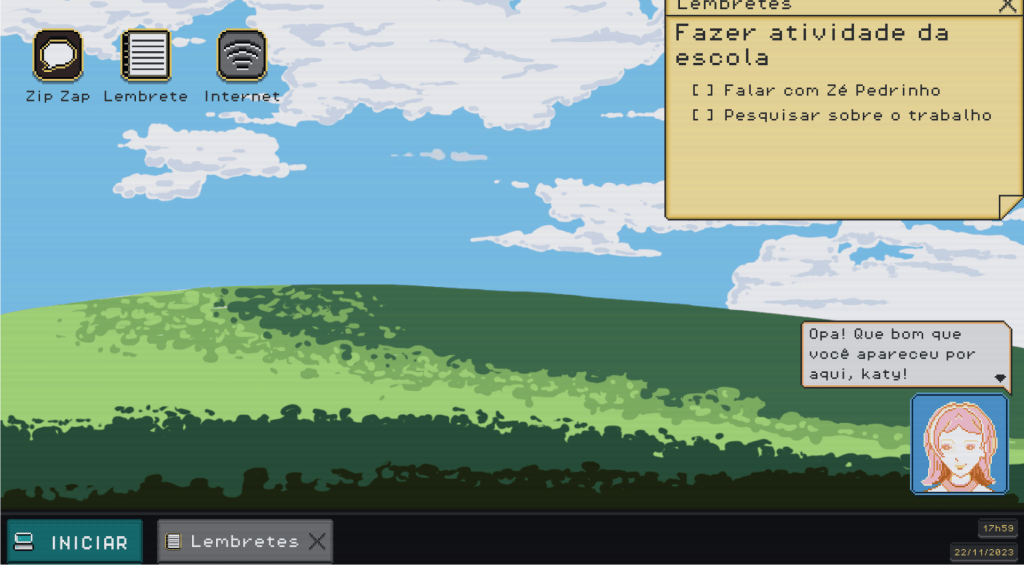Project lead Professor Edward King has previously worked on game-design projects with Cachalote Produções and Aoca Games Lab.
The demo for the game is based on research carried out by Ed King and Felipe Fonseca in consultation with a range of non-profit organisations based in Brazil, including Instituto Procomum (Santos), Coletivo Digital (São Paulo) and Casa de Cultura Tainã (Campinas).
Futurecall is a narrative-driven video game made with Unity that aims to raise awareness about misinformation on social media particularly in the context of social upheaval, particularly the the political crisis in Brazil. In the early 2000s, during the first administration of the left-wing Worker’s Party President Lula da Silva, the Brazilian government invested heavily in ‘digital inclusion’ initiatives as a way of reducing social inequalities in the country. The ‘Pontos de Cultura’ project, for example, which funded media centres based in community spaces across the country, including in favelas and socially deprived neighbourhoods, became a model for approaches to free software among policy makers in Europe and North America.
Now that there are extremely high levels of smartphone ownership and social media usage in Brazil, it has become clear that access to digital networks is not a guarantee of social inclusion but can entail exposure to manipulation and data surveillance. As a result, the focus among governmental and non-profit organisations working in this area has shifted from increasing digital inclusion to supporting digital literacies across the social spectrum.
The aim was to create an accessible, engaging, free and enjoyable educational resource which will encourage young people to think critically about these issues through the medium of digital play. The game’s target audience are children and teenagers and it is playable in English and Portuguese.




